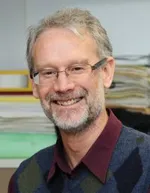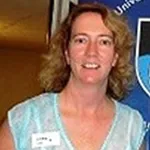The PII has provided central institutional support and academic leadership, promoted knowledge sharing, cross-disciplinary collaboration and communication – both within and beyond the university community – to expand and raise the profile of UCT’s collective contribution to addressing challenges posed by poverty and inequality in South Africa. The PII brought together high-profile members from diverse disciplines across the university – at regular meetings, seminars and other events – to share knowledge and promote collaborative research into the complex challenges posed by poverty and inequality.
The PII has also played a leading role in the national inquiry into strategies to overcome poverty and inequality, launched at conference at UCT in 2012.
In 2014, the PII assessed major research gaps and the areas of ‘Youth’ and ‘Social Cohesion’ were identified as underdeveloped but crucial areas; both at UCT and also in the national space. Research centred on these themes was undertaken by appointing two theme leaders, Dr Ariane De Lannoy (Youth) and Professor Justine Burns (Social Cohesion), to lead these processes. Under their guidance both themes hosted national workshops and developed multi-and interdisciplinary programmes for these areas.
Read more on the PII research on Youth and Social Cohesion.
Our people
The team members who supported and contributed to the strategic focus of the Poverty and Inequality Initiative were:

Murray Leibbrandt, Pro Vice-Chancellor Poverty and Inequality (2013 – 2018)
Professor Leibbrandt is Director of the Southern Africa Labour and Development Research Unit (SALDRU), DST-NRF National Research Chair of Poverty and Inequality Research and a Research Fellow for the Institute for the Study of Labour (IZA) in Bonn, Germany. He is also a past president of the African Econometric Society and of the South African Economic Society. He completed his PhD at Notre Dame University. He is Project Director of the Research Project on Employment, Income Distribution and Inclusive Growth (REDI3x3), and a co-convener of the southern African node of the ARUA Centre of Excellence for Inequality Research. Professor Leibbrandt has held a visiting fellowship at Cornell University, and visiting professorships at the University of Michigan and Yale University. Professor Leibbrandt has participated in a number of committees tasked with poverty reduction and improving standards of living in South Africa and internationally. He was a member of South Africa’s first post-apartheid Labour Market Commission, has been a member of the International Panel Evaluating World Bank Research into poverty and inequality and a member of the International Panel on Population Growth and Human Welfare in Africa. Professor Leibbrandt has been the recipient of numerous honours, scholarships, bursaries and awards. He has researched and published extensively on South African poverty‚ inequality and labour market dynamics using survey data and‚ in particular‚ panel data.
Haajirah Esau, Programme Manager
With experience as a manager in research funding and committees at the Research Office at UCT, Haajirah Esau has managed the programmes and strategic activities of the Poverty & Inequality Initiative. She was previously the Collections Coordinator of the District Six Museum and brought to the PII team a diverse array of skills in analytical research, project planning and management, and communications.

Justine Burns, Associate Professor
Associate Professor Justine Burns is a behavioural economist who works on issues of trust, identity, and social cohesion, with a focus on how these impact labour market outcomes and well-being. With a PhD from University of Massachussets (Amherst), she is an Associate Professor in the School of Economics at UCT, and a research associate of the Southern Africa Labour and Development Research Unit. Associate. Professor Burns led the Social Cohesion theme of the Poverty & Inequality Initiative.
Ariane De Lannoy, Associate Professor
Associate Professor Ariane De Lannoy is a sociologist and senior researcher who headed the work programme on Youth within the Poverty & Inequality Initiative. She holds Masters degrees in languages and international politics from the Universities of Ghent and Antwerp (Belgium) and a PhD from the University of Cape Town. Her research focuses on youth in rapidly changing urban environments, mostly using a qualitative and mixed-methods approach. She is especially interested in youth transitions, identities and decision-making in the complex context of post-apartheid South Africa. In 2014, she collaboration with Katherine S. Newman, Provost at the University of Massachusetts, Amherst (USA), to publish After Freedom: The Rise of the Post-Apartheid Generation in Democratic South Africa. The work discusses the political expectations and social experience of men and women in their early 30s in South Africa. They were children in the final years of apartheid, but were trying to shape their adult lives in the rather uneven and halting process of democratisation. This narrative-style book was published by Beacon Press (Boston). Associate Professor De Lannoy has led and co-published on several studies on the situation of South Africa's youth since then.